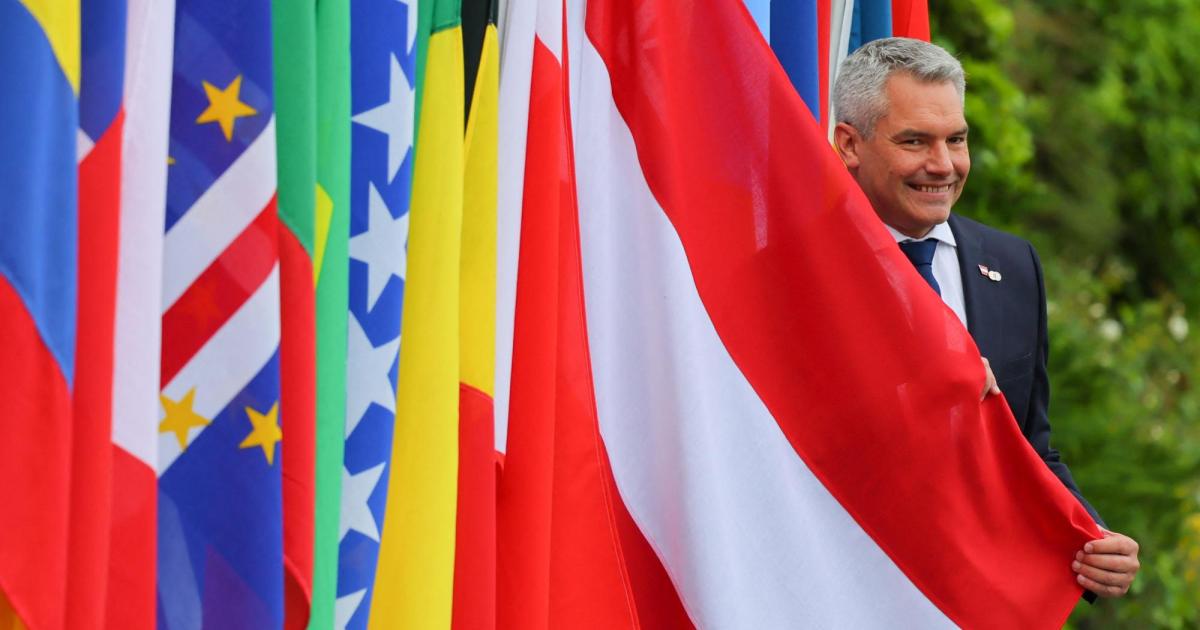At the Ukraine peace conference in Switzerland, 81 countries and the EU supported a joint final declaration on Sunday. Austria is among the approving states, as are Germany and the USA. The EU, the EU Parliament and the European Council are also there. According to a list published at the summit, Bahrain, Brazil, Colombia, the Vatican, India, Indonesia, Mexico, Saudi Arabia, South Africa, Thailand and the UAE are not included.
The participating heads of state and government were unable to agree on a clear approach to involving Russia in a peace process. There was no agreement on the question of when exactly and how Russia should be involved in the future, said Swiss President Viola Amherd at the end of the conference, according to the sda news agency.
The peace summit for Ukraine in Switzerland with more than 90 states ended on Sunday. The meeting, which was also attended by Federal Chancellor Karl Nehammer (ÖVP), is intended to initiate a peace process in which Russia will also be included in the long term. Nehammer said the lack of unanimity was “not dramatic” because a common “basic attitude” was present.
Russia as “aggressor”
The Chancellor told the media before the conclusion of the declaration that “not everyone will sign it.” The main reason for this was the choice of words. Some countries were reluctant to call Russia an “aggressor.” The discussions at the conference had “positively motivated” Nehammer, and he sensed a lot of mutual respect.
Final declaration at the Ukraine Peace Conference
At the beginning of the war, hardly anyone thought it was possible that Ukraine would hold out for so long. Regardless of an agreement, Nehammer interpreted the meeting in Switzerland as a “great sign” and “success”: “Ukraine’s fate is being seen.” After all, it is not just European countries that are affected: “There are allies all over the world for peace.”
Important topics included the protection of the Russian-occupied Zaporizhia nuclear power plant, the renunciation of the use of nuclear weapons, grain exports and prisoner exchanges. It was clearly communicated that there would be no peace without Russia. The aim was to organize a follow-up conference with concrete negotiations, said Nehammer. However, he could not yet estimate the details of this.
It is unlikely that the summit participants will set a date or even an approximate time on Sunday. However, the hosts hope that a follow-up conference will be decided this year. “As an international community, we can help prepare the ground for direct talks between the warring parties,” said Swiss President Viola Amherd.
No alternative peace plans
The final declaration of the Ukraine conference was complete and “balanced,” Ukrainian Foreign Minister Dmytro Kuleba told journalists. The positions of the government in Kiev were taken into account. No alternative peace plans were discussed at the summit. Ukraine will not allow Russia to use the language of ultimatums.
Statements from Moscow immediately before the summit made it clear how far away a peace solution is. Russian President Vladimir Putin named his conditions for negotiations, including Ukraine’s complete renunciation of the Donetsk, Luhansk, Kherson, Zaporizhia and the Black Sea peninsula of Crimea – just over a fifth of Ukraine’s territory. According to Russian sources, Putin is not ruling out talks with Ukraine. However, guarantees are needed to ensure the credibility of any negotiations, Russian media quoted Kremlin spokesman Dmitry Peskov as saying on Sunday.
US Vice President Kamala Harris dismissed Putin’s demand as absurd. “We have to tell the truth. He is not calling for negotiations, he is calling for surrender,” she said – and assured Ukraine of continued support in its defensive struggle against Russia. “America is not standing by Ukraine out of charity, but because it is in our strategic interest.”
In the draft of the final declaration, which was made available to the Reuters news agency, Russia is blamed for the war in Ukraine, which has caused great human suffering and destruction, and calls for respect for Ukraine’s territorial integrity. It also demands that Kiev regain control of the Zaporizhia nuclear power plant and access to its ports on the Black and Azov Seas. All Ukrainian prisoners of war must be released and children deported from Ukraine must be returned to their homeland. A threat to use nuclear weapons against Ukraine in connection with the ongoing war is inadmissible.
Opportunity for diplomacy
The initiative for the summit came from the Swiss government and Ukrainian President Volodymyr Zelensky. “We managed to give diplomacy a chance,” Zelensky said before the opening of the peace conference.
The Swiss hosts had spent months trying to get as many countries as possible to participate. 160 were invited, and more than 90 agreed – many of them are represented by heads of state and government.
